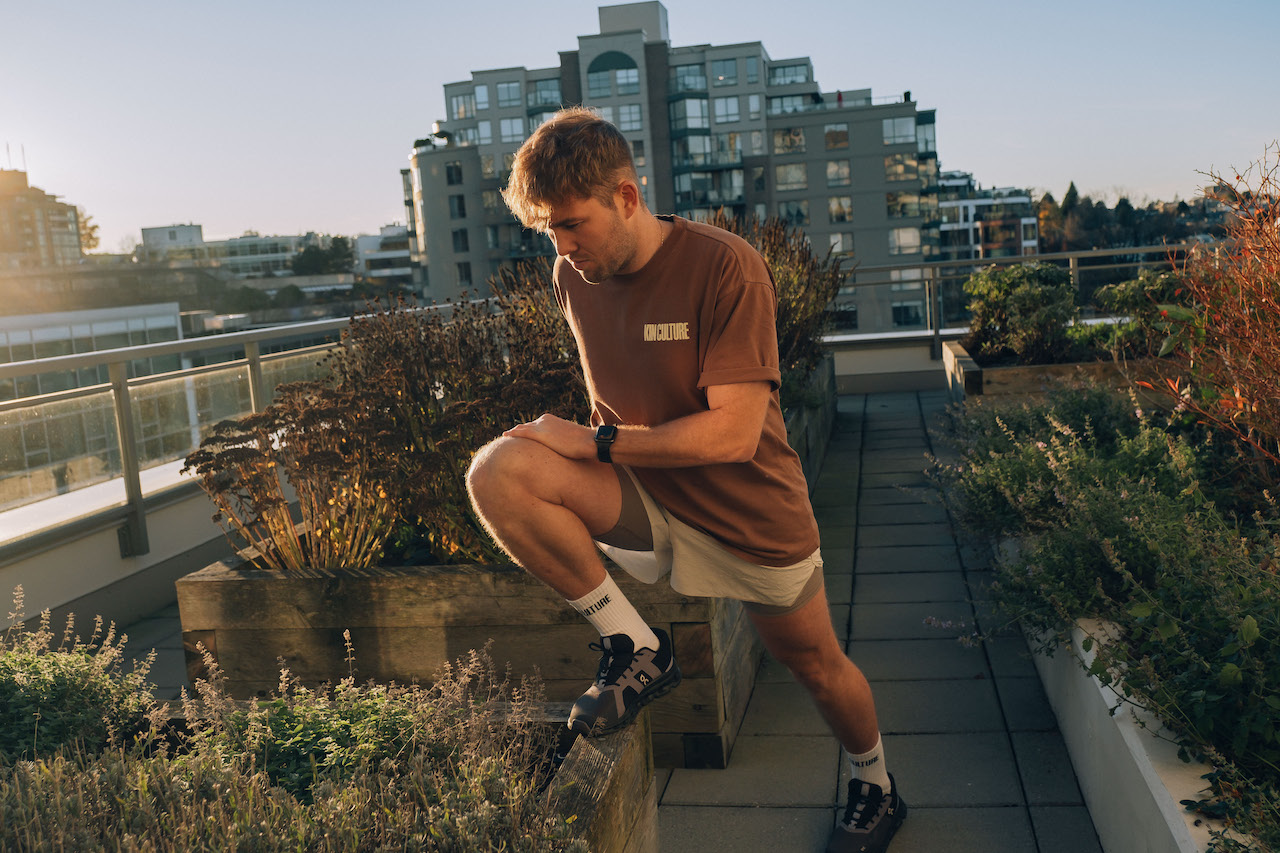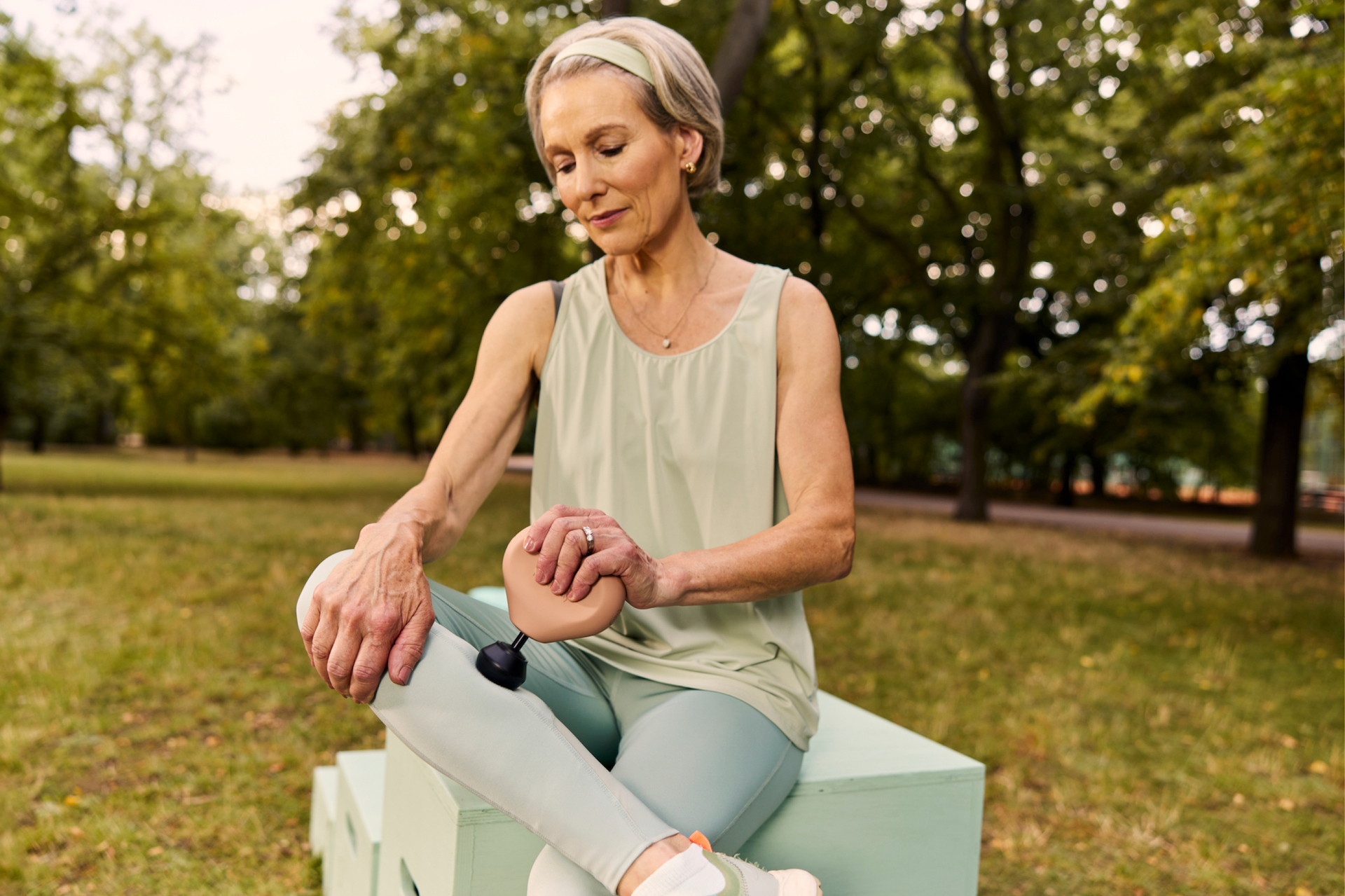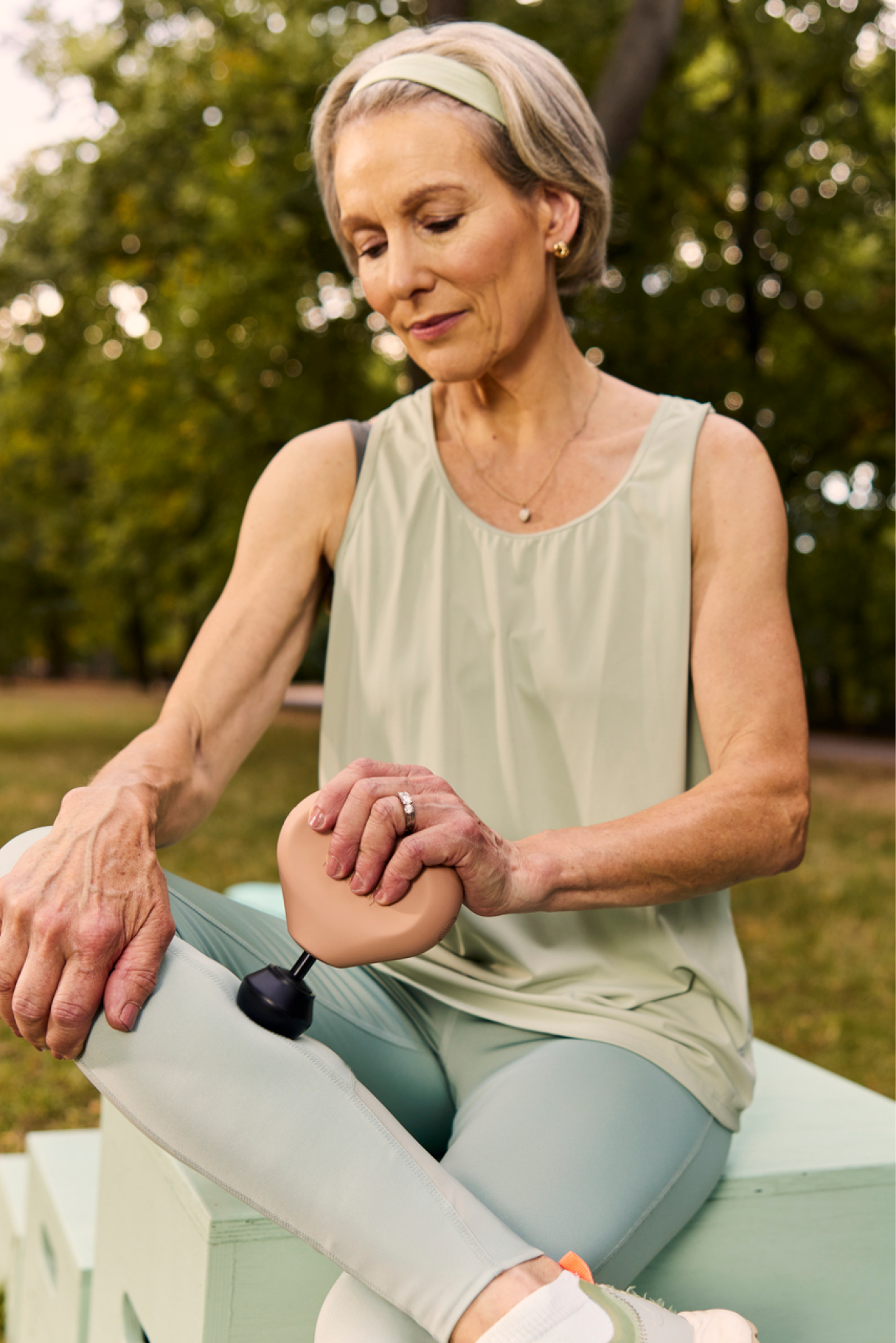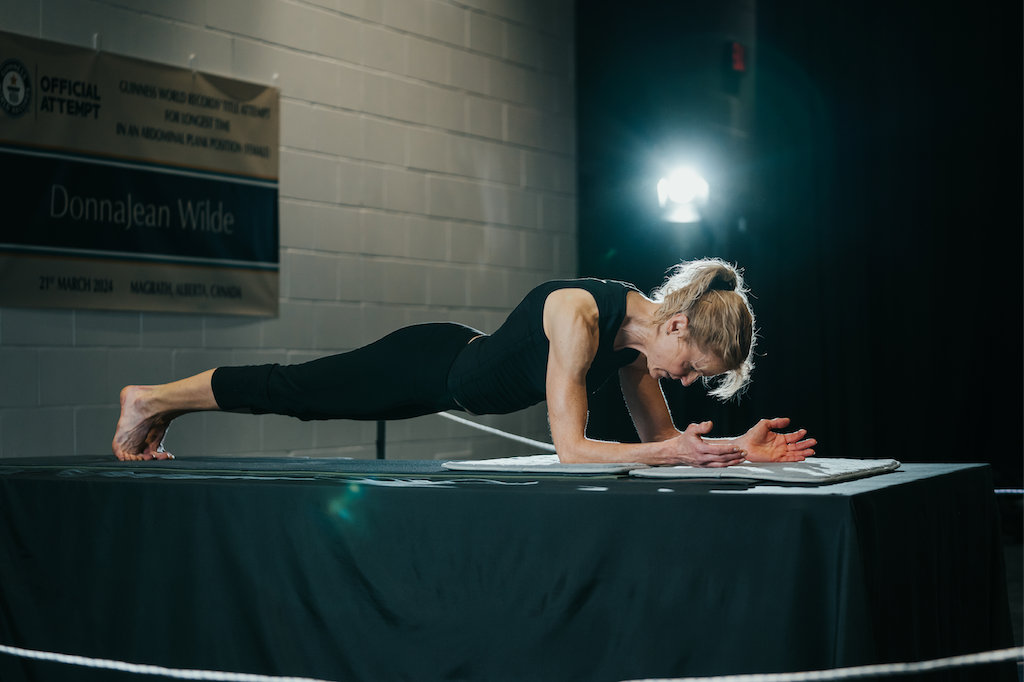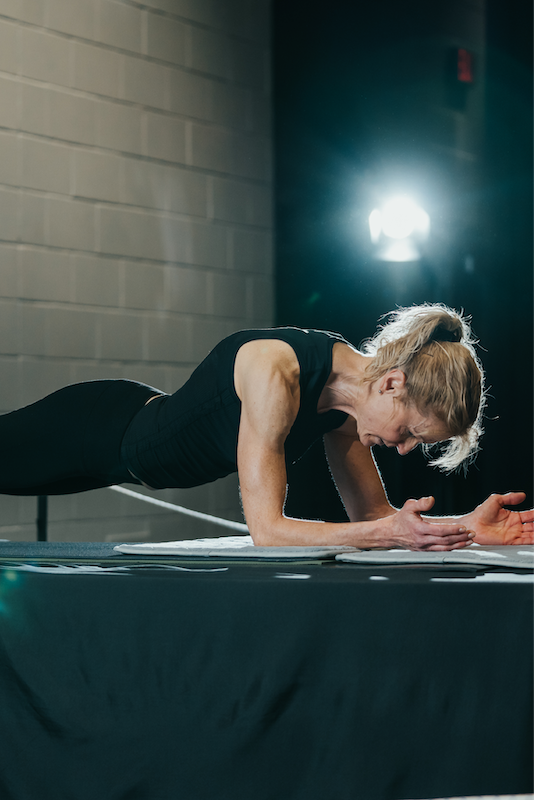Sean Collins is the kind of person who welcomes a hug when you reach out for a formal handshake. That’s exactly what happened when I walked into Kin Culture, the new fitness studio Sean co-founded this year in Kitsilano, a bustling Vancouver neighbourhood. As I enter the space, I notice a calm, quiet energy, though a handful of members exercise together in a group class, a trainer stretches while working on a laptop, and music pulses in the background. It’s open, modern with a sense of coziness, intentionally designed, and inspired by and for moving together—much like Sean.
Sean moved to Vancouver, Canada from Ireland in 2016. “I’ll be home soon, it’s just for 6 months,” he insisted to his brother when he made the move. Eight years later, he’s now a local, and a well-known friend in the fitness community. Sean’s movement journey started far earlier when he enrolled in sports at 4 years old in Douglas, the suburb he grew up in on the outskirts of Cork. Like many kids growing up in Ireland, he began playing hurling and Gaelic football (“like soccer with zero rules,” he explains) with guidance and encouragement from his parents, now 63 and both career athletes themselves, and his older brother and sister. Hurling, as Sean describes it, is a mix of field hockey, lacrosse, and sword fighting. “It’s the fastest sport in the world. So hectic, but the best sport ever,” he states with visible pride. I make a mental note immediately to search for this on YouTube when I get home, and am not disappointed.
Sport was a pillar of his community, and Sean loved it. If you weren’t playing, you were training for it, traveling to it, and going to school in between. For kids in the community, competing on teams together, learning together, and playing together was a big part of their lives. You start young, and can “play until you’re 80, and it’s serious all year round,” says Sean with a grin.
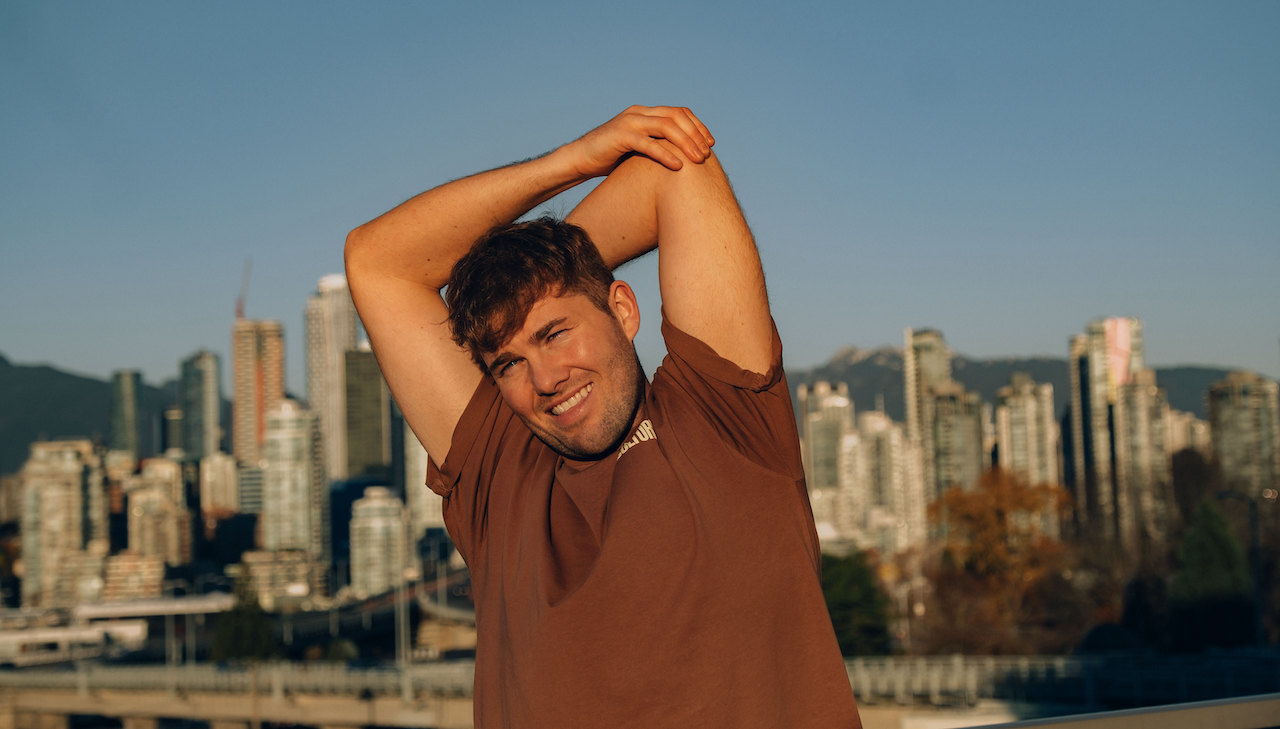
Listening to Sean reflect on his childhood and upbringing of movement, it’s impossible not to see his love of Ireland, his family, hurling, and community. However, as he grew up, he began to encounter challenges. In a driven and structured home with experienced, athletic, and disciplined parents, Sean confesses that food was one area that became an outlet for independence and an issue for him and his sister. “It was too strict,” he reflects on his relationship with food, “the food was there, but we couldn’t have it.”
Eventually, this unhealthy relationship with food began to interfere with their quality of life. So much so that at the age of 12, with the support of their family, Sean’s sister made an appearance on Operation Transformation, the Irish show similar to The Biggest Loser but with a focus on a healthy lifestyle over losing weight. Behind the scenes, Sean began to train and learn new habits along with her. With this positive influence, new motivation, and a live-in coach (his dad), Sean started experiencing the effects of good movement on the activities and hobbies he loved. Though the lifestyle shift and physical training with his father was intense, “it was the best thing that ever happened to me,” Sean reflects. “It made me a very strong person, and I wouldn’t have this space, or the career I have now without it.”
In the years to come, his sister began personal training, an influence that marked Sean’s life as he became increasingly involved in sport and physical fitness, deepening his love of movement. When his sister moved away to Australia, Sean took on her clients—friends, friends’ parents, his mom, and anyone else in the community who had been on her list. He welcomed and trained clients in his own living room, before eventually transforming a shed in the backyard into his own studio. This formative experience and newfound passion became the foundation for Sean’s career.
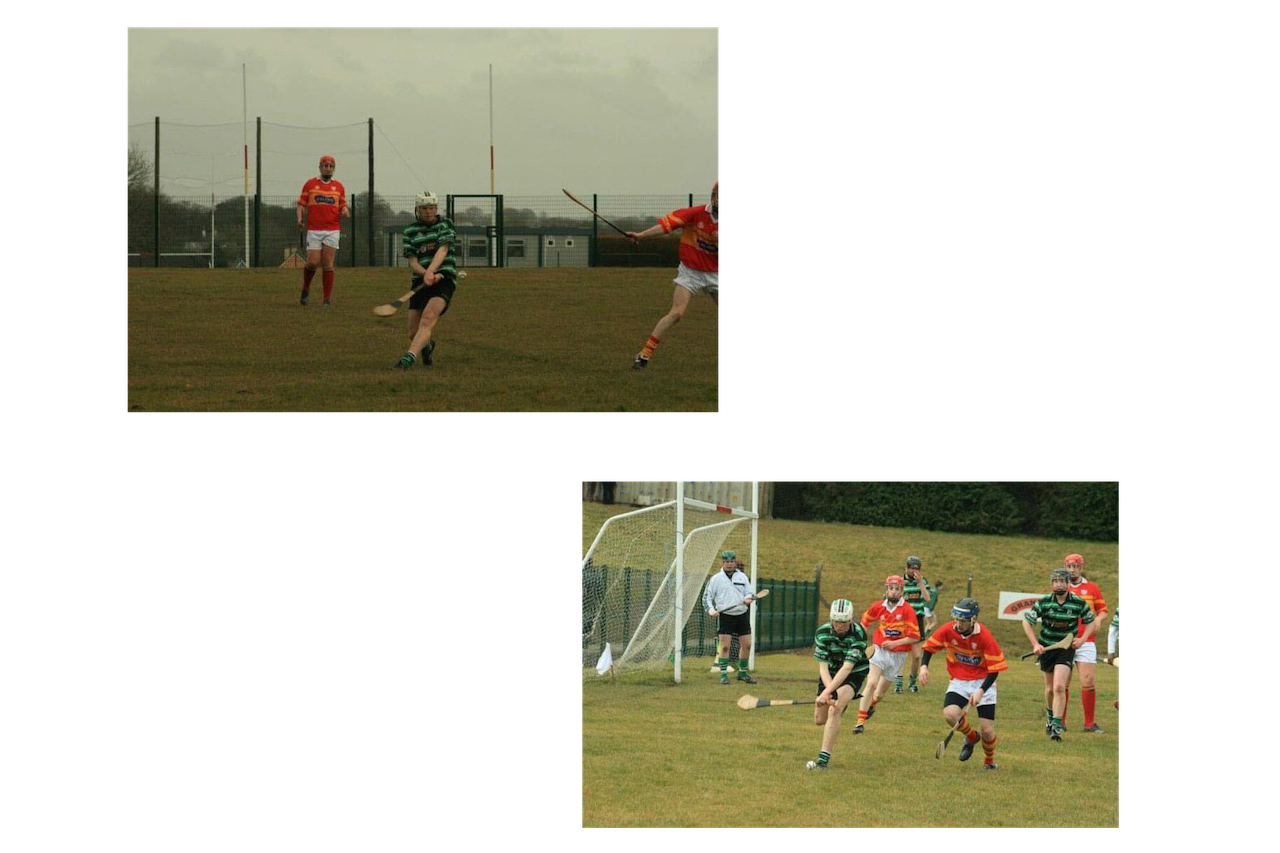
While at college studying personal training and business, Sean spent time working in a gym, coaching swimming, and seriously competing in hurling. His life revolved around fitness and performance. It began to take on a dark side, and he began hyper-focusing on his nutritional intake, counting calories, measuring portions, and tracking everything. “It always felt like people were watching me, I needed to look a certain way, and that I didn’t look good enough.” He looks back on this time, realizing the slow progression of what he now can identify as an eating disorder. “It was so specific, and all counted out. I’d make myself get sick thinking that I needed to be leaner”. Though he felt drawn to healthy movement, longevity, and the quality of life improvement that fitness added to his life, it felt at odds with the weight-loss-charged approach to health that prevailed around him. “The mindset was very much aesthetic.”
After a spontaneous decision to move to Vancouver with a group of six friends from home, Sean was settling into his new surroundings and itching to jump back into training. He was hired on as a personal trainer with Equinox and started getting into a new rhythm and movement approach in the Vancouver fitness scene. “It was just perfect timing. I got the job there and never looked back.”
As he settled into his new home, there was a gradual shift in his relationship to movement and nutrition. “It wasn’t a tipping point,” Sean reflects, but a slow change brought on by a combination of factors: being submerged in a new city, a collective mindset of movement for function and fun, and clients that came to him with practical wellness goals. He recalls one client in her mid-60s coming to him and saying that she just wanted to be able to do her hobbies for longer, and keep moving well with no pain. “She’s onto something,” he remembers thinking.
Sean thrived seeing this functional, holistic, and more personal approach to fitness embodied by the culture around him for the first time in his life. “I just remember realizing: ‘No, actually I don’t have to be worried about calories; I don’t have to be worried about the time I eat certain foods; I don’t have to be bodybuilding.’ I told myself: ‘Go enjoy yourself, switch your mindset.’ Life is so much better this way, and I’ve stuck with that ever since.”
For Sean, the definition of health is no longer about performance, the number on a scale, or personal bests in the gym anymore. Though those can still be important things, they’re not the focus. Now, it’s all about being able to move well during the things he loves, like playing soccer, the sport Sean fell in love with in Vancouver and credits with keeping him motivated. “It’s that I’m able to do the things I love; if I don’t feel good on the pitch, something’s going on. But if I feel good on the pitch, move fast, and play easily, I could be any weight and still feel good.”
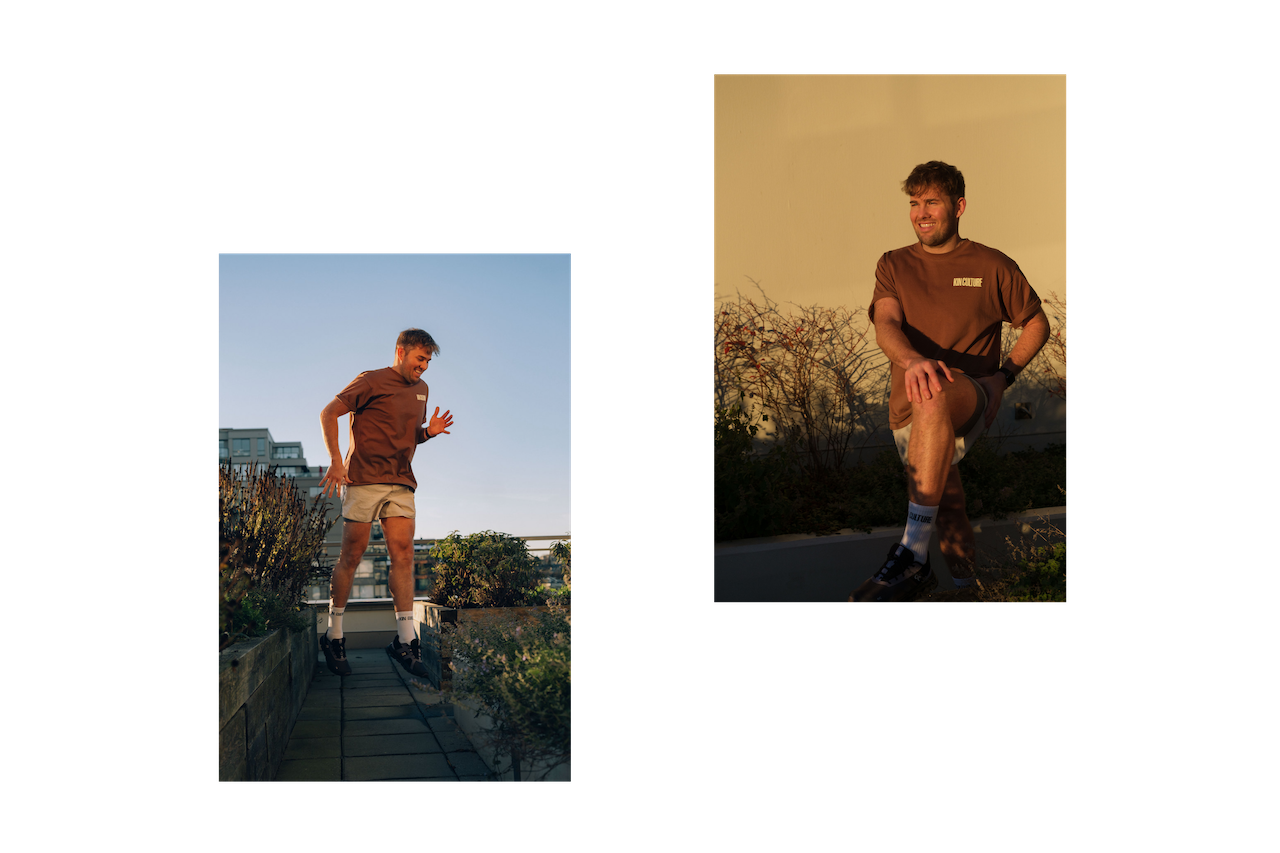
Sean began dreaming about opening his own studio that would support others to feel the same, and in 2020, he and his new business partner Richard Poole started to develop what now is Kin Culture. The pair built momentum, held events, developed a business plan, and found a brick-and-mortar space. In the thick of the excitement, challenges, decisions, and big-picture planning, at the end of 2022, Sean found himself mentally worn down and emotionally depleted. “For the first time in my life, I felt my own struggle with mental health—I hated how I felt,” he admits, remembering the uncontrollable, foreign feeling of anxiety attacks and depression that he hadn’t experienced before. He began to understand personally the effect of mental health on every facet of life, and the importance of movement, community, and connection. The first steps are those initial conversations, and welcoming in safe, trusted accountability—just speaking up to one person. A close friend encouraged him to explore therapy, and after some time Sean found a therapist that clicked. “It definitely took a few months for me to get back to just enjoying who I was as a person myself.”
This awareness and dedication to mental health added to the foundation of his personal movement philosophy with Kin Culture, incorporating an intuitive, personal, and flexible approach to each session, class, and member relationship. If someone shows up feeling tired, low energy, not 100% in it, that’s okay. “You can’t be 10/10 every day, and when you’re not, we’ll just take it at a 2. I want to make people feel comfortable not to push themselves.” He takes it further, saying: “You don’t have to figure it out in the moment when you’re already in a bad mindset. Just let it happen. Maybe you don’t come into the gym, but you go for a walk, drink some water, go have a sleep, talk to someone.” He knows that it’s about the little steps towards self-care, and when you release those strict expectations for more intuitive ones, you’ll feel a little bit better moving through it slowly. “It’s those tiny decisions.”
At Kin Culture, Sean’s training roster ranges from 13 to 77 years of age, and that’s exactly what he’s used to. Growing up with active parents and grandparents, he’s always had an understanding for movement at every stage of life, and continuing to do what you love, no matter what season of life you’re in. He laughs, thinking back on his grandmother and her unstoppable, vibrant energy: “My gran, she was the queen of it all—walking, gardening, cooking, taking care of her hens in the back, always doing it all.” Speaking to those in midlife, Sean’s advice is to “stop caring what other people think or about the aesthetic or what other people look like.” His big approach to longevity? “Walk! Keep walking, drink more water, sleep well, get outside, and just play. It could be anything!” You enjoy tennis? Do that. Dancing? Of course. Swimming? Make it happen! “Move in ways that challenge your body. We get stuck in our bodies when we don’t move in different patterns or multi-directional positions.” His goals for each person that walks through the door at Kin Culture, for his parents, his young nieces and nephew, and for himself are all the same: to move pain free, enjoy the activities you love, and have fun. “If you have pain, get it sorted, then find whatever you enjoy, and do it more often so that you can do it longer!
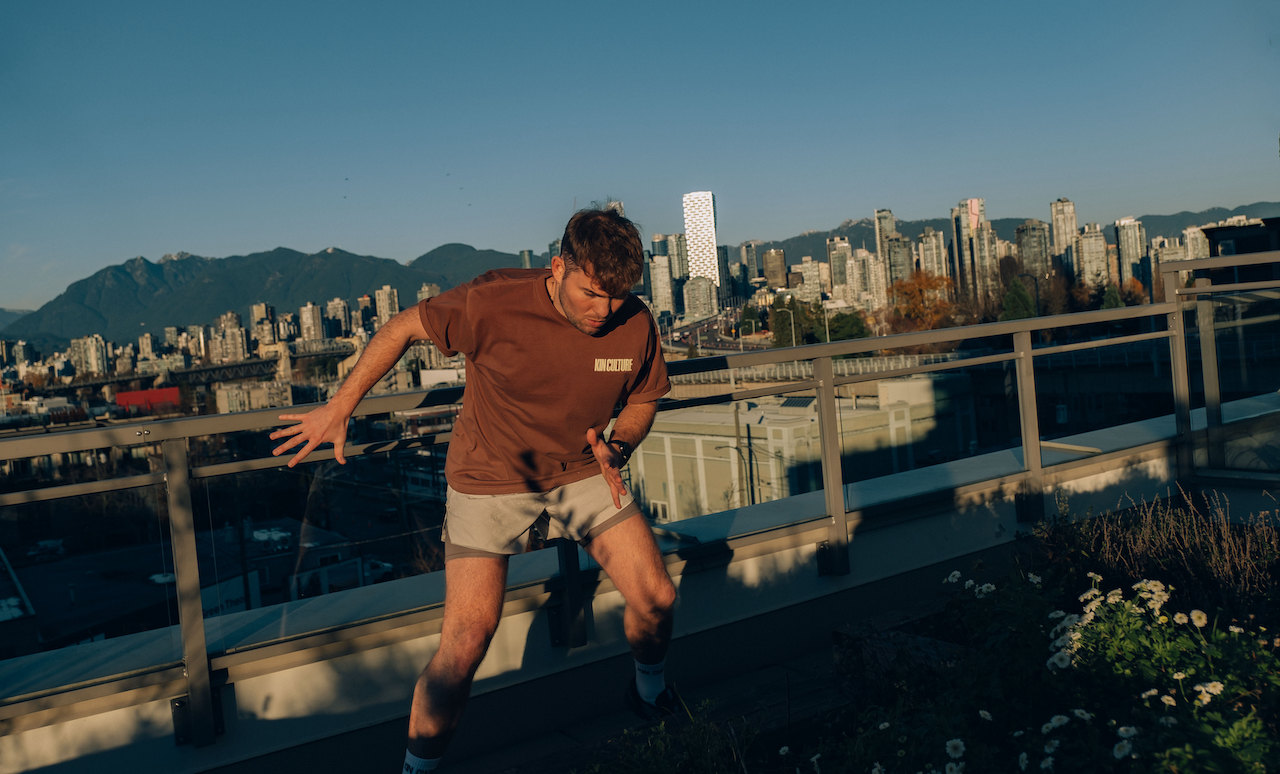
Sean is keenly attuned to pain in movement. When asked where this comes from, he pauses. “I’ve never really thought about that,” he reflects. “I haven’t really had any major injuries or seasons of pain,” he says gratefully. His gaze drifts thoughtfully for a moment, landing back in Cork with his own parents. “I remember I hated seeing my parents in pain, and they’re the most important people to me”. His father has competed, coached, and worked hard his whole life; purposeful, determined, practical. The only reason Sean or his siblings were aware of any pain was through gentle nudging from their mother to help with tasks or chores. His mother, too, is a life-long mover, having grown up pursuing athletics and discovering tennis in her midlife. Sean grimaces at the idea of those close to him suffering in their body. “It devastates me.” But a stubborn approach of silently pushing through pain is common. “There’s a fear of ‘I don’t want to stop’ or ‘If I don’t do this task, no one will.’”
But Sean believes there’s a difference between moving despite pain and moving through pain. In training, he’ll tell clients if the pain is a 3/10 or lower, keep going at an easy pace. Anything worse than that, and you should adjust your movement altogether or pause. But there are ways to keep going. You walk instead of run, step instead of jump, or practice mobility instead of agility. “It might feel like a step back in the moment, and it might mean you can’t train as often,” but ignoring pain is a deeper challenge. As someone who confronts pain every day, Sean’s advice is gentle but firm: “Train for longevity—if you don’t fix the issue now, you’re going to have this issue for the next 20, 30, 40 years. Take a little step back, fix the pain, then keep going and you’ll move better for the rest of your life.”
Having swung to both ends of the pendulum, Sean knows that an unhealthy mindset won’t help you improve. And you can improve. “It’s okay not to be okay—we can fix it. Movement can fix pretty much everything.” No matter what stage of life or circumstances, Sean believes that, and lives his life by it. Just keep playing.
